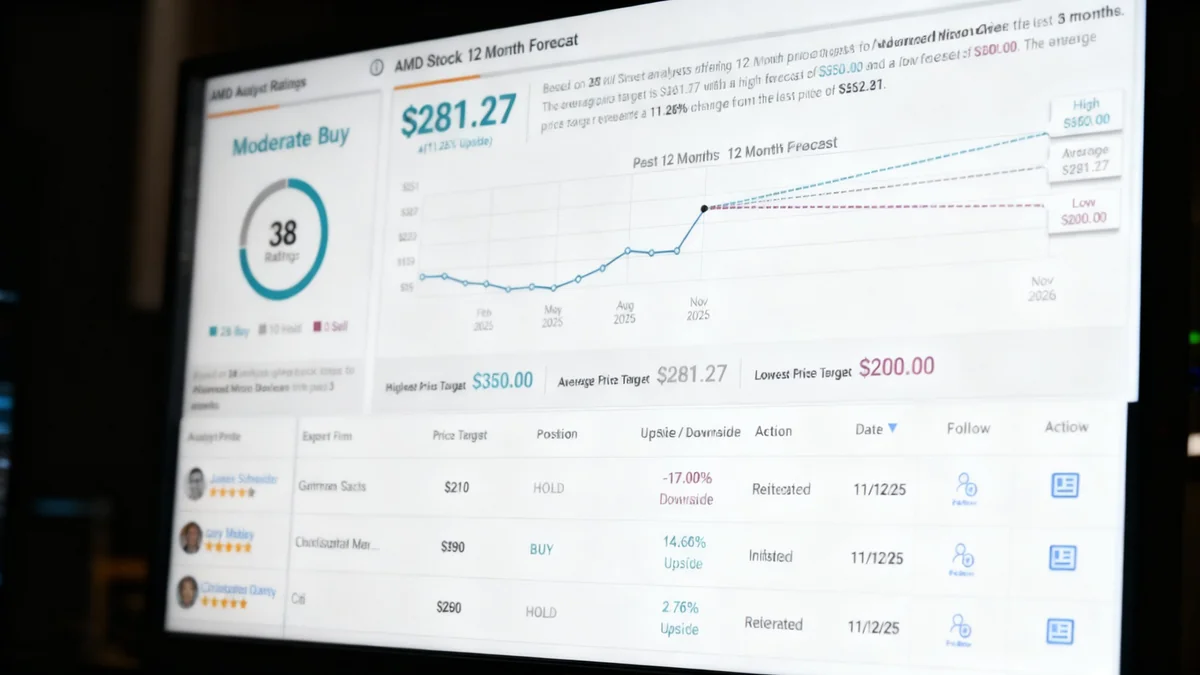The United States government has filed a lawsuit against Adobe Inc., alleging the software company deceives consumers by hiding expensive cancellation fees in its popular subscription plans. The complaint, filed by the Federal Trade Commission (FTC), also names two senior executives, Maninder Sawhney and David Wadhwani, as defendants.
The lawsuit claims Adobe pushes customers toward its "annual paid monthly" subscription without clearly disclosing that canceling the plan early could result in a termination fee amounting to hundreds of dollars. This action is part of a broader crackdown by federal regulators on what they term "dark patterns"—deceptive online design practices that trick or manipulate consumers into making unintended purchases or commitments.
Key Takeaways
- The U.S. Department of Justice, on behalf of the FTC, is suing Adobe and two of its executives.
- The lawsuit alleges Adobe uses a pre-checked box to enroll users in its most lucrative subscription plan without clear disclosure of terms.
- Consumers face a significant early termination fee, often 50% of the remaining annual contract, if they cancel after a 14-day window.
- The FTC claims Adobe's cancellation process is intentionally complex and designed to deter users from stopping their subscriptions.
- This legal action is part of a wider government effort to enforce the Restore Online Shoppers’ Confidence Act (ROSCA).
Federal Government Alleges Deceptive Practices
The core of the government's complaint focuses on Adobe's primary subscription model: the "annual, paid monthly" plan. According to the FTC, Adobe guides consumers to this option for its popular software suites like Photoshop, Illustrator, and Premiere Pro, often pre-selecting it as the default choice during checkout.
The lawsuit states that the company fails to adequately disclose a critical term attached to this plan. While users pay on a month-to-month basis, they are actually committing to a full year of service. If they choose to cancel more than 14 days after their initial purchase, Adobe charges them an early termination fee (ETF) of 50% of their remaining contract obligations.
Samuel Levine, Director of the FTC’s Bureau of Consumer Protection, commented on the action.
"Adobe trapped customers into year-long subscriptions through hidden early termination fees and numerous cancellation hurdles. Americans are tired of companies hiding the ball during subscription signup and then putting up roadblocks when they try to cancel."
The complaint argues that this fee structure is not made clear to consumers. The details are allegedly buried in fine print or behind optional hyperlinks, a practice that violates federal law designed to protect online shoppers.
The Role of Corporate Executives
In a significant move, the FTC's lawsuit also names two specific Adobe executives as defendants: Maninder Sawhney, Senior Vice President of Digital Go To Market & Sales, and David Wadhwani, President of Digital Media Business. The complaint alleges that these executives "directed, controlled, had the authority to control, or participated in the acts and practices of Adobe."
What is ROSCA?
The Restore Online Shoppers’ Confidence Act (ROSCA) was enacted to combat deceptive online sales tactics. The law makes it illegal to charge consumers for goods or services online through a negative option feature unless the seller clearly discloses all material terms, obtains the consumer's express informed consent before charging them, and provides a simple way to stop recurring charges.
By including senior leadership, the government is signaling its intent to hold individuals accountable for corporate practices deemed harmful to consumers. The FTC argues that the subscription and cancellation processes were not accidental but were designed and implemented under the direction of company leadership to maximize revenue at the expense of transparency.
This strategy of naming executives is becoming more common in FTC enforcement actions, aiming to create a higher level of personal responsibility for corporate decisions that affect the public.
Complex Cancellation Process Under Scrutiny
Beyond the hidden fees, the lawsuit also criticizes Adobe's cancellation process. The FTC describes it as an "onerous and complicated" procedure designed to deter customers from successfully ending their subscriptions. Consumers who wish to cancel reportedly must navigate multiple web pages and pop-ups in a process that the government says is intentionally convoluted.
The complaint details several obstacles customers face, including:
- Difficulty locating the cancellation option online.
- Being required to re-enter passwords multiple times.
- Facing unexpected offers and surveys that interrupt the process.
- Experiencing dropped calls or chats with customer service representatives.
According to the FTC, these barriers are another violation of ROSCA, which mandates that businesses provide a cancellation method that is as simple as the initial sign-up process. The agency claims Adobe's system is a clear example of a company creating unnecessary friction to retain subscribers against their will.
Adobe's Financial Performance
Adobe's subscription-based model has been incredibly successful. For the fiscal year 2023, the company reported revenue of $19.41 billion, a 10% increase from the previous year. A significant portion of this revenue comes from its Digital Media segment, which includes Creative Cloud subscriptions.
In response to the lawsuit, Dana Rao, Adobe's General Counsel and Chief Trust Officer, stated the company would contest the claims in court. "Subscription services are convenient, flexible and cost effective to allow users to choose the plan that best fits their needs, timeline and budget," Rao said. "We are transparent with the terms and conditions of our subscription agreements and have a simple cancellation process."
Broader Implications for the Subscription Economy
The lawsuit against Adobe is not an isolated event. It represents a key part of the Biden administration's broader campaign against so-called "junk fees" and deceptive business practices. The FTC has become increasingly active in enforcing ROSCA, targeting companies that use confusing interfaces and complex cancellation procedures to lock in customers.
This legal action sends a strong message to the entire subscription-based industry, from streaming services to software providers. Companies are now on notice that their subscription models must be transparent and their cancellation processes straightforward.
Consumer Impact and Company Response
For years, consumers have voiced frustration online about Adobe's cancellation policies. Many have shared stories of being surprised by large termination fees they were unaware of when they signed up. The FTC's lawsuit effectively validates these long-standing complaints.
Adobe has maintained that its terms are clear and that its subscription models offer value and flexibility. The company argues that the annual plan provides a lower monthly price in exchange for a year-long commitment, a common practice in many industries. However, the government's case hinges on whether the terms of that commitment were disclosed clearly and conspicuously before the customer made a purchase.
The outcome of this case could set a new precedent for how subscription services must present their terms and conditions. If the government is successful, it could force widespread changes in online checkout designs and cancellation procedures across the digital economy, potentially saving consumers millions of dollars in unwanted fees.





